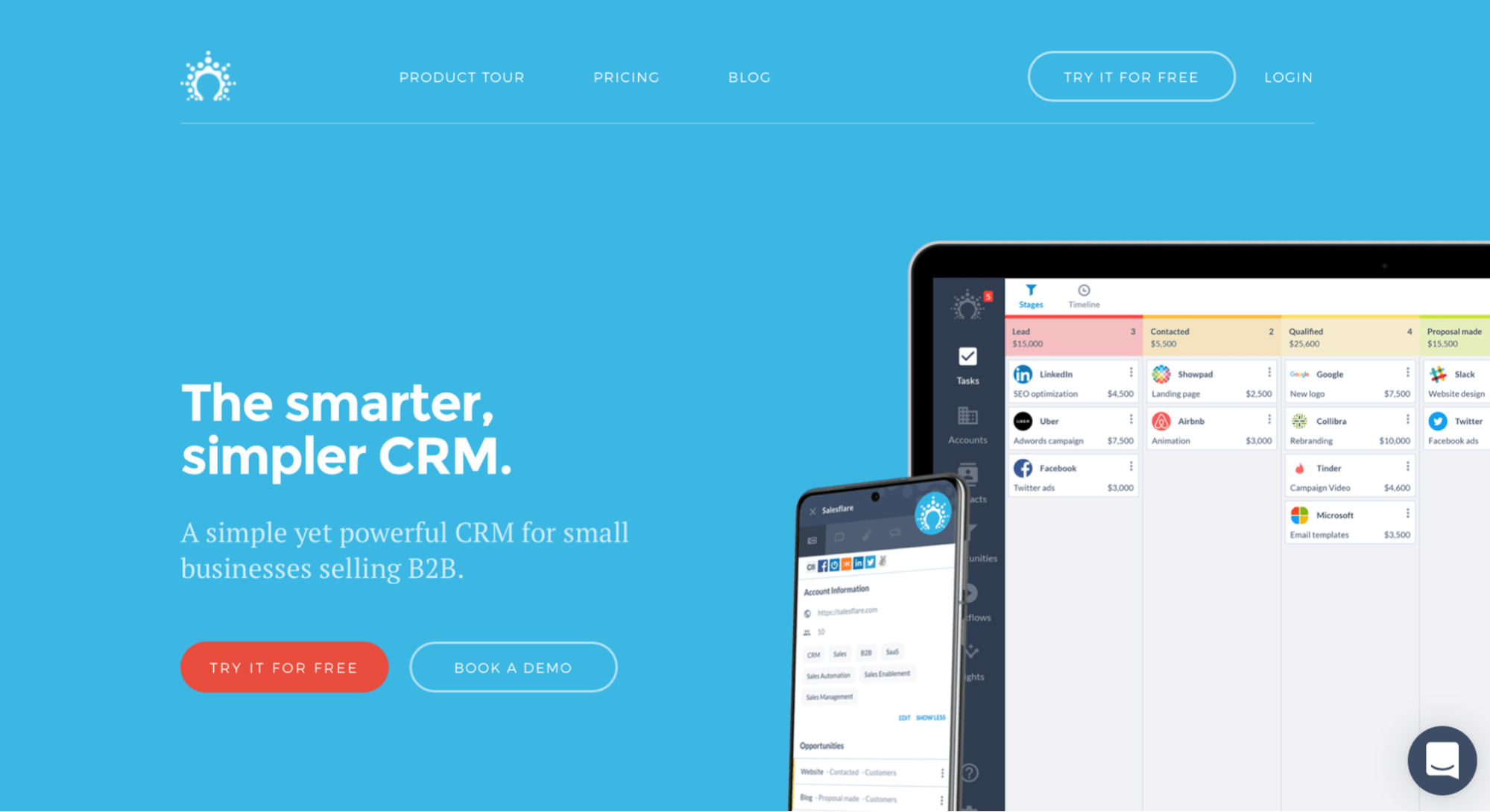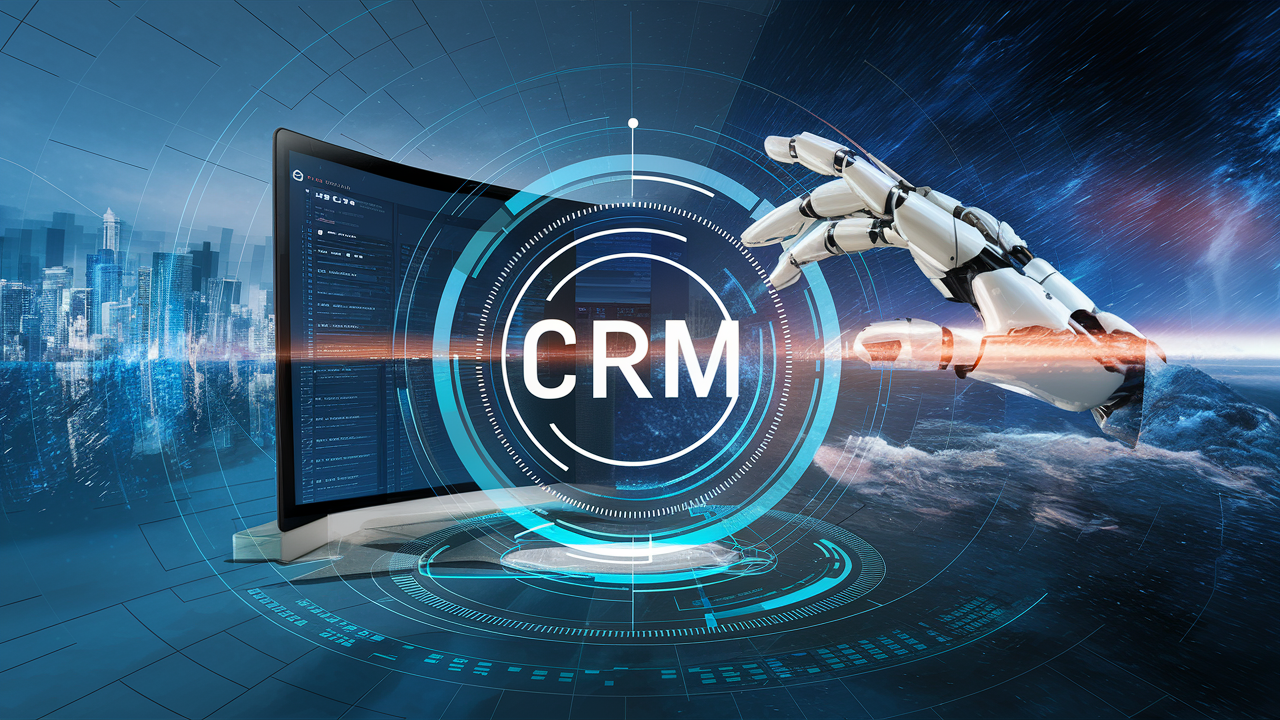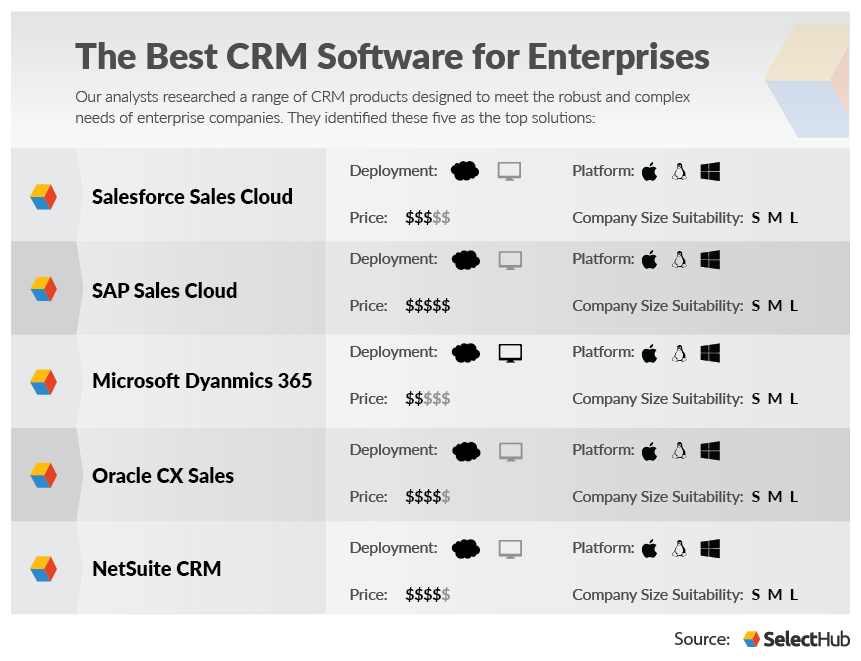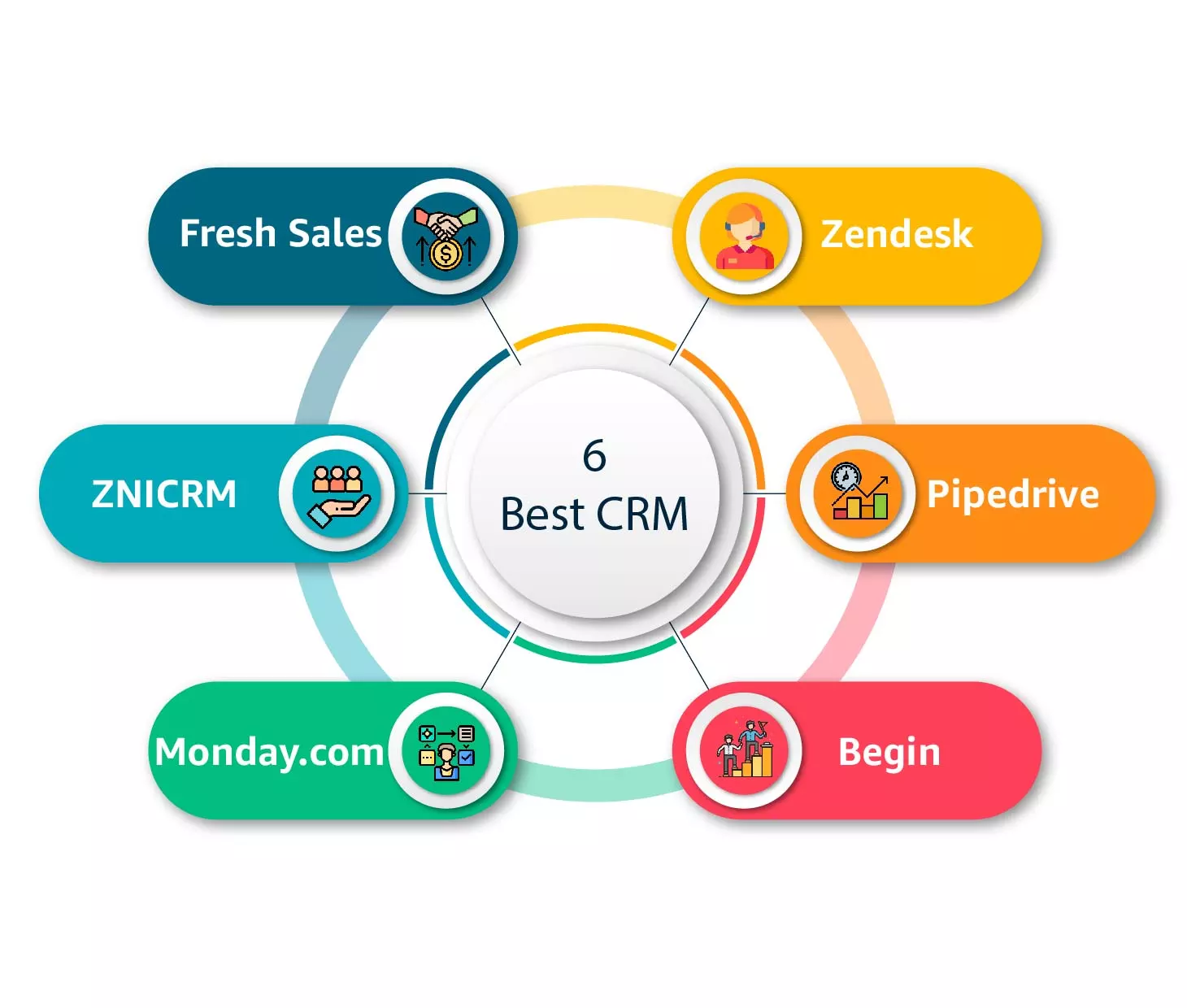Top Cloud-Based CRM Platforms
Top Cloud-Based CRM Platforms are revolutionizing how businesses manage customer relationships. This shift from on-premise systems offers significant advantages, including enhanced accessibility, scalability, and cost-effectiveness. This exploration delves into the leading platforms, their features, and the crucial considerations for successful implementation, ultimately guiding you towards selecting the optimal solution for your specific needs.
We’ll examine the strengths and weaknesses of various top contenders, comparing pricing models, integration capabilities, and security measures. Understanding the nuances of each platform – from its target audience to its unique selling propositions – is key to making an informed decision. We’ll also look ahead at future trends shaping the cloud-based CRM landscape.
Introduction to Cloud-Based CRM Platforms
Cloud-based CRM (Customer Relationship Management) platforms represent a significant shift in how businesses manage their interactions with customers. They offer a flexible and scalable alternative to traditional on-premise systems, leveraging the power of the internet to provide accessible and cost-effective solutions for managing customer data and interactions.
Cloud-based CRM systems offer several key advantages over their on-premise counterparts. The most prominent benefit is reduced infrastructure costs. Businesses avoid the expense of purchasing, maintaining, and upgrading expensive hardware and software. Furthermore, cloud-based CRMs are readily accessible from anywhere with an internet connection, promoting greater collaboration and flexibility for remote teams. Automatic updates and enhanced security features provided by cloud providers also reduce the IT burden on businesses. Finally, the scalability of cloud-based CRMs allows businesses to easily adjust their resources based on their changing needs, avoiding the complexities and potential costs of scaling on-premise systems.
Key Features of Cloud-Based CRM Platforms
Most cloud-based CRM platforms share a core set of features designed to streamline customer interaction management. These commonly include contact management, enabling businesses to store and organize detailed information about their customers; lead management, facilitating the tracking and nurturing of potential customers; sales force automation, automating repetitive tasks such as tracking sales activities and generating reports; marketing automation, automating marketing campaigns and tracking their effectiveness; customer service and support tools, providing channels for customers to receive assistance; reporting and analytics dashboards, offering insights into customer behavior and sales performance; and integration capabilities, allowing the CRM to connect with other business applications. These features work together to provide a comprehensive solution for managing the entire customer lifecycle.
Cloud-Based CRM Deployment Models
Different deployment models cater to various business needs and technical capabilities. The three primary models are Software as a Service (SaaS), Platform as a Service (PaaS), and Infrastructure as a Service (IaaS).
| Deployment Model | Description | Responsibility | Example |
|---|---|---|---|
| SaaS (Software as a Service) | The vendor manages all aspects of the software, including infrastructure, updates, and security. Users access the software via a web browser. | Vendor manages everything; user manages data and configuration. | Salesforce, HubSpot |
| PaaS (Platform as a Service) | The vendor provides the platform (operating system, database, etc.), allowing users to deploy and manage their own applications. | Vendor manages infrastructure and platform; user manages applications and data. | Force.com (Salesforce), Google App Engine |
| IaaS (Infrastructure as a Service) | The vendor provides the underlying infrastructure (servers, storage, networking), allowing users to manage all other aspects of the software. | Vendor manages infrastructure; user manages everything else. | Amazon Web Services (AWS), Microsoft Azure |
Top Platforms
Choosing the right cloud-based CRM can significantly impact a business’s efficiency and growth. This section provides an overview and comparison of leading platforms, highlighting their strengths and weaknesses to aid in informed decision-making. We will focus on pricing models and key features to help you assess which platform best suits your specific needs.
Top Cloud-Based CRM Platforms: An Overview
Several cloud-based CRM platforms dominate the market, each offering a unique set of features and pricing structures. The following list represents some of the most popular and widely-used options: Salesforce Sales Cloud, HubSpot CRM, Zoho CRM, Microsoft Dynamics 365, and SAP Customer Experience. Other notable platforms include Pipedrive and Freshsales, depending on specific business needs and scale.
Pricing Models and Comparisons
Cloud-based CRMs typically employ tiered subscription models, offering varying levels of functionality and user capacity at different price points. Freemium models, offering basic functionality for free with paid upgrades for advanced features, are common. Salesforce Sales Cloud, for example, offers a range of plans from basic to enterprise-level solutions, reflecting its comprehensive feature set. HubSpot CRM, on the other hand, offers a robust free plan, ideal for smaller businesses, with paid plans adding features like marketing automation and sales analytics. Zoho CRM follows a similar tiered model, offering various plans tailored to different business sizes and requirements. Microsoft Dynamics 365 and SAP Customer Experience are typically enterprise-level solutions with pricing tailored to individual customer needs and often requiring custom quotes. Pipedrive and Freshsales generally offer more straightforward pricing models with fewer tiers, focusing on providing essential CRM functionality at competitive price points.
Feature Comparison
The following table compares the key features of the aforementioned platforms. Note that feature availability and specific functionalities can vary depending on the chosen pricing plan.
| Platform | Contact Management | Sales Automation | Marketing Automation | Customer Service Tools | Reporting & Analytics |
|---|---|---|---|---|---|
| Salesforce Sales Cloud | Comprehensive, including detailed contact history and segmentation | Lead management, opportunity tracking, sales forecasting | Email marketing, campaign management, lead nurturing | Case management, knowledge base integration | Advanced analytics dashboards, custom reports |
| HubSpot CRM | Contact and company information, deal tracking | Sales pipeline management, deal closing tools | Email marketing, landing pages, forms | Live chat, ticketing system | Basic reporting, customizable dashboards |
| Zoho CRM | Contact management, lead scoring, customizable fields | Sales process automation, workflow rules | Email marketing, social media integration | Help desk integration, customer portal | Customizable reports, analytics dashboards |
| Microsoft Dynamics 365 | Comprehensive contact management, integrated with other Microsoft products | Sales pipeline management, forecasting, opportunity management | Marketing automation capabilities integrated with other Dynamics 365 modules | Case management, service level agreements | Robust reporting and analytics capabilities |
| SAP Customer Experience | Customer data integration across multiple channels | Sales force automation, lead nurturing | Marketing campaign management, personalization | Omnichannel customer service, case management | Advanced analytics and reporting |
| Pipedrive | Contact management, deal tracking, activity logging | Sales pipeline management, customizable workflows | Limited marketing automation features | Basic customer communication tools | Sales performance reports, customizable dashboards |
| Freshsales | Contact and company information, lead management | Sales pipeline management, automation rules | Email marketing, lead scoring | Help desk integration, phone support | Sales performance reporting, customizable dashboards |
Platform Specific Features and Functionality
Choosing the right cloud-based CRM platform hinges on understanding the specific features and functionality each offers. This section delves into the unique selling propositions of several leading platforms, considering their target audiences and integration capabilities.
Salesforce: Unique Selling Propositions, Target Audience, and Integrations
Salesforce, a market leader, boasts a highly customizable and scalable platform suitable for enterprises of all sizes. Its strength lies in its comprehensive suite of tools encompassing sales, service, marketing, and commerce functionalities. The platform’s robust automation capabilities, advanced analytics dashboards, and extensive AppExchange (a marketplace of third-party apps) contribute to its appeal. Salesforce targets a broad spectrum, from small businesses leveraging its Essentials edition to large enterprises utilizing its sophisticated Sales Cloud and Service Cloud offerings. Integration is seamless with a vast array of applications, including email marketing platforms like Mailchimp and Pardot, accounting software such as NetSuite and QuickBooks, and numerous other business tools. Its extensive API ensures connectivity with almost any system.
Microsoft Dynamics 365: Unique Selling Propositions, Target Audience, and Integrations
Microsoft Dynamics 365 is a strong contender, particularly appealing to businesses already invested in the Microsoft ecosystem. Its seamless integration with other Microsoft products like Office 365 and Power BI is a major advantage. Dynamics 365 offers robust functionalities for sales, customer service, marketing, and operations, with strong reporting and analytics capabilities. It caters to a wide range of businesses, from small and medium-sized enterprises (SMEs) to large corporations, offering various plans to suit different needs and budgets. Its integration capabilities are extensive, leveraging Microsoft’s robust infrastructure and APIs to connect with various accounting, marketing, and other business applications.
HubSpot CRM: Unique Selling Propositions, Target Audience, and Integrations
HubSpot CRM is known for its user-friendly interface and its focus on inbound marketing. It’s particularly well-suited for small to medium-sized businesses (SMBs) and those prioritizing a strong marketing automation strategy. The free version offers a good starting point for smaller businesses, while paid versions unlock more advanced features. Its strength lies in its integrated marketing automation tools, allowing for streamlined workflows and effective lead nurturing. HubSpot integrates well with many popular marketing and sales tools, and its API facilitates custom integrations. Its target audience is primarily marketing-focused businesses seeking a user-friendly and scalable solution.
Zoho CRM: Unique Selling Propositions, Target Audience, and Integrations
Zoho CRM is a comprehensive platform known for its affordability and extensive features. It offers a wide range of functionalities at a competitive price point, making it attractive to businesses of all sizes, especially those seeking cost-effective solutions. Its flexibility and customization options allow businesses to tailor the platform to their specific requirements. Zoho offers strong integration capabilities with other Zoho applications, as well as a range of third-party applications through its API. This makes it a versatile choice for businesses looking for a cost-effective yet feature-rich solution. Its target audience is diverse, ranging from small businesses to larger organizations looking for a value-driven option.
Security and Scalability Considerations
Choosing a cloud-based CRM involves careful consideration of security and scalability. These factors are crucial for protecting sensitive business data and ensuring the platform can adapt to future growth. A robust security framework and scalable architecture are essential for long-term success.
Data security and system scalability are paramount when selecting a cloud CRM. Leading providers employ multiple layers of security to protect customer data, adhering to strict industry regulations and best practices. Simultaneously, the ability to seamlessly scale resources up or down as needed is vital for businesses experiencing fluctuating demands or rapid growth.
Data Security Measures
Leading cloud-based CRM providers utilize a multi-layered security approach. This typically includes robust data encryption both in transit and at rest, access controls based on roles and permissions, regular security audits and penetration testing, and intrusion detection and prevention systems. For example, Salesforce employs a combination of physical security measures in its data centers, network security protocols like firewalls and intrusion detection systems, and data encryption techniques such as AES-256 encryption. This layered approach helps mitigate risks associated with unauthorized access, data breaches, and other security threats.
Data Privacy and Compliance
Cloud-based CRM platforms are designed to comply with various data privacy regulations, including GDPR (General Data Protection Regulation) and CCPA (California Consumer Privacy Act). Providers typically offer features such as data masking, anonymization, and consent management tools to help businesses meet these requirements. Furthermore, they often provide detailed documentation outlining their compliance efforts and certifications, such as ISO 27001 (information security management) and SOC 2 (System and Organization Controls) compliance reports. These demonstrate their commitment to data privacy and regulatory adherence.
Scalability Options
Cloud-based CRMs offer various scalability options to accommodate business growth. Most platforms utilize a pay-as-you-go model, allowing businesses to easily scale resources up or down based on their needs. This might involve increasing storage capacity, adding users, or upgrading to a higher-tiered plan with enhanced features. For instance, a small business starting with a basic plan can easily upgrade to a more comprehensive plan with increased storage and user capacity as its team expands and data volume increases. Conversely, during periods of lower activity, businesses can adjust their resource allocation to minimize costs. This flexibility eliminates the need for significant upfront investments in hardware and infrastructure, allowing businesses to focus resources on core business functions.
Implementation and User Experience
Successfully implementing a cloud-based CRM and ensuring a positive user experience are critical for maximizing the platform’s value. A well-planned implementation minimizes disruption and fosters user adoption, leading to improved efficiency and data accuracy. Conversely, a poorly executed implementation can lead to frustration, low adoption rates, and ultimately, a failed CRM initiative.
A smooth user experience hinges on intuitive interface design and comprehensive training. Users need to find the system easy to navigate and understand, enabling them to perform their tasks efficiently. This, in turn, boosts productivity and data quality, directly impacting the overall success of the CRM deployment.
Step-by-Step CRM Implementation Guide
Implementing a cloud-based CRM involves a structured approach. Each step is crucial for a successful deployment, minimizing disruption and maximizing user adoption.
- Needs Assessment and Platform Selection: Begin by thoroughly analyzing your business needs and identifying the key functionalities required from a CRM. This assessment will guide the selection of a platform that aligns with your specific requirements and budget. Consider factors such as scalability, integration capabilities, and reporting features.
- Data Migration and Cleansing: Migrate existing customer data to the new CRM platform. Before migration, cleanse and standardize your data to ensure accuracy and consistency. This process may involve removing duplicates, correcting inconsistencies, and updating outdated information. Thorough data cleansing is vital for accurate reporting and analysis.
- System Configuration and Customization: Configure the CRM system to match your business processes and workflows. This may involve customizing fields, creating custom reports, and integrating with other business applications. Ensure the system is tailored to your specific needs for optimal functionality.
- User Training and Onboarding: Provide comprehensive training to users on how to effectively utilize the CRM system. This should include both initial training sessions and ongoing support. Hands-on training and readily available resources are essential for user adoption.
- Go-Live and Post-Implementation Support: Launch the CRM system and provide ongoing support to users. Monitor system performance and address any issues promptly. Regular updates and ongoing support are crucial for long-term success.
Typical User Experience and Interface Design
Most cloud-based CRM platforms share a common design philosophy, prioritizing ease of use and intuitive navigation. They typically feature a user-friendly interface with a dashboard providing a centralized view of key metrics and tasks. Many utilize a modular design, allowing users to customize their views and access only the information relevant to their roles. For example, Salesforce’s Lightning Experience offers a highly customizable and visually appealing interface. Similarly, Microsoft Dynamics 365 boasts a clean and intuitive design, emphasizing ease of navigation and data access.
Best Practices for User Training
Effective user training is crucial for successful CRM adoption. A multi-faceted approach, combining different training methods, often yields the best results.
- Hands-on Training Sessions: Interactive workshops allow users to practice using the system in a guided environment.
- Online Tutorials and Documentation: Provide readily accessible online resources, including video tutorials and comprehensive documentation, for self-paced learning.
- On-the-Job Support and Mentoring: Pair new users with experienced colleagues for ongoing support and guidance.
- Gamification and Incentives: Introduce game-like elements or incentives to encourage user engagement and learning.
- Regular Refresher Courses: Periodic refresher courses help maintain user proficiency and address any evolving needs.
Future Trends in Cloud-Based CRM
The cloud-based CRM landscape is constantly evolving, driven by technological advancements and changing business needs. Several key trends are shaping the future of this critical business tool, promising both enhanced capabilities and new challenges for providers and users alike. These trends represent a shift towards more intelligent, accessible, and integrated CRM systems.
The integration of artificial intelligence (AI) and the rise of predictive analytics are fundamentally altering how businesses interact with their customers. This evolution moves beyond simple data storage and retrieval to proactive engagement and insightful forecasting.
AI Integration and Predictive Analytics
AI is rapidly transforming CRM systems, enabling more sophisticated automation, personalized customer experiences, and improved decision-making. AI-powered features such as intelligent chatbots for customer service, lead scoring based on predictive models, and automated sales forecasting are becoming increasingly commonplace. For example, a retail company might use AI to analyze customer purchase history and browsing behavior to predict future purchases, allowing for targeted marketing campaigns and personalized recommendations. This predictive capability allows businesses to optimize resource allocation, improve sales conversion rates, and enhance customer loyalty. The use of machine learning algorithms within CRM systems facilitates the identification of patterns and trends that would be impossible to detect manually, leading to more accurate forecasting and proactive problem-solving.
Mobile Accessibility and CRM Apps
The increasing reliance on mobile devices has significantly impacted CRM usage. Mobile accessibility is no longer a luxury but a necessity for effective customer relationship management. The proliferation of CRM apps designed for smartphones and tablets allows sales teams, customer service representatives, and even executives to access and update customer information anytime, anywhere. This enhances responsiveness, improves collaboration, and ensures that crucial customer data is readily available regardless of location. Consider a field sales representative who can update customer interactions and access relevant information instantly using a CRM app on their tablet, improving efficiency and customer satisfaction. The seamless integration of mobile CRM with other business applications further streamlines workflows and enhances productivity.
Challenges and Opportunities for Cloud-Based CRM Providers
The future of cloud-based CRM presents both exciting opportunities and significant challenges for providers. Maintaining robust security in the face of evolving cyber threats is paramount. Providers must invest heavily in security infrastructure and implement stringent data protection measures to maintain customer trust and comply with increasingly stringent regulations. Furthermore, the need to continuously innovate and adapt to emerging technologies, such as the integration of blockchain for secure data management or the metaverse for enhanced customer interactions, requires significant investment in research and development. Conversely, the growing demand for customized and integrated CRM solutions presents a lucrative opportunity for providers to offer specialized services and cater to the unique needs of diverse industries. The ability to seamlessly integrate CRM systems with other enterprise applications, such as ERP and marketing automation platforms, will be a key differentiator in the market. Successfully navigating these challenges and capitalizing on these opportunities will be crucial for cloud-based CRM providers to maintain a competitive edge in the years to come.
Epilogue
Choosing the right cloud-based CRM platform is a strategic decision impacting efficiency and growth. By carefully weighing the factors discussed – including cost, functionality, scalability, and security – businesses can confidently select a system that aligns with their current and future requirements. Remember to consider not only the platform’s technical capabilities but also its user-friendliness and the potential for seamless integration with existing workflows. The right platform can be a powerful engine for customer relationship management and ultimately, business success.



